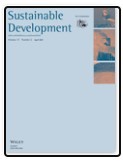Progress of the Malabo Declaration as a Regional Agenda Towards Addressing Hunger in Africa

This is an open-access article.
The Malabo Declaration commits African Union member states to eliminating hunger by 2025. Progress toward this target has been uneven and poorly understood. While some countries have recorded gains in non-hunger thematic areas such as finance, trade, resilience to climate variability, and governance and accountability mechanisms, the extent to which these improvements contribute to hunger reduction remains unclear. This study investigates whether performance in non-hunger areas, as measured through the Comprehensive Africa Agriculture Development Programme Biennial Review C-scores, is statistically associated with outcomes under Commitment 3, which focuses on hunger reduction. We used random effects panel regression model covering 55 African countries from 2017 to 2023, the analysis identifies five significant predictors: agricultural GDP and poverty reduction (PC 4.1), foreign private investment (PC 2.3), multi stakeholder coordination (PC 1.2), inclusive public–private partnerships (PC 4.2), and trade policies (PC 5.2). Investment in resilience (PC 6.2) and capacity for planning and monitoring (PC 7.1) showed marginal associations. Our findings suggest that institutional presence alone does not drive hunger outcomes. We reflect that what matters is the structure, inclusiveness, and functionality of these mechanisms, including whether investments reach food-insecure populations, coordination platforms influence decisions, and whether policies adapt to local conditions. This study concludes that some high-performing categories fail to deliver tangible hunger reduction benefits when implementation is fragmented or disconnected from context. These findings challenge how progress is currently measured and interpreted at the regional level. Finally, we reiterate that as the region prepares for the post-2025 agenda, future strategies must directly link agricultural transformation to hunger reduction through targeted interventions and accountable institutions.







